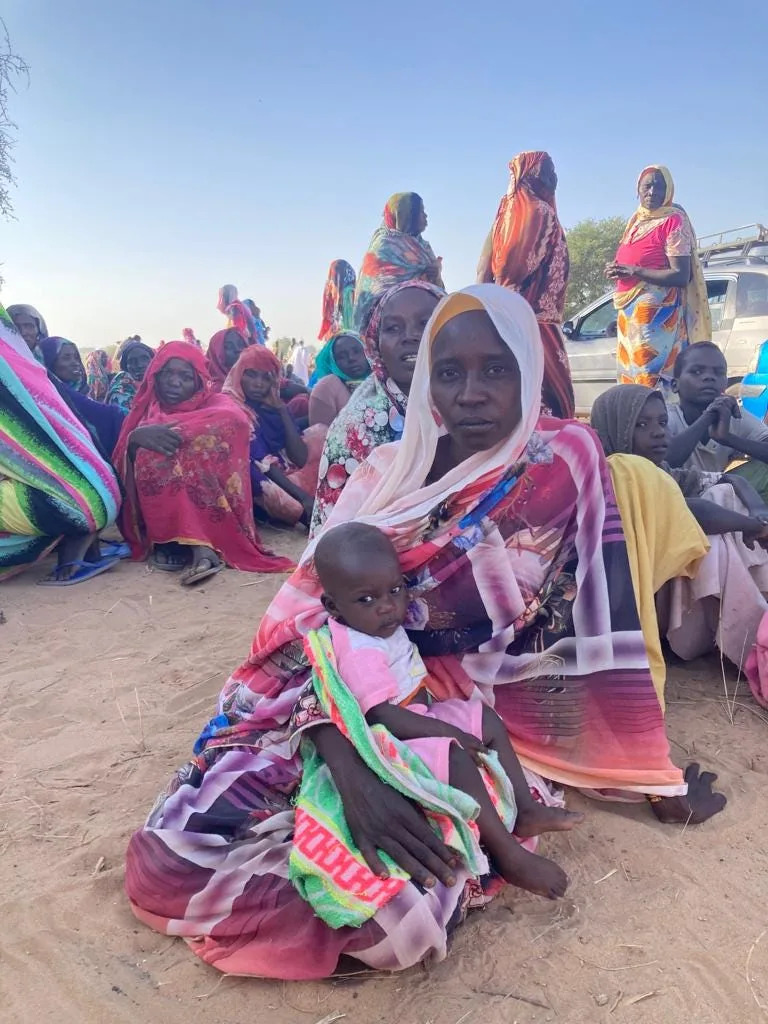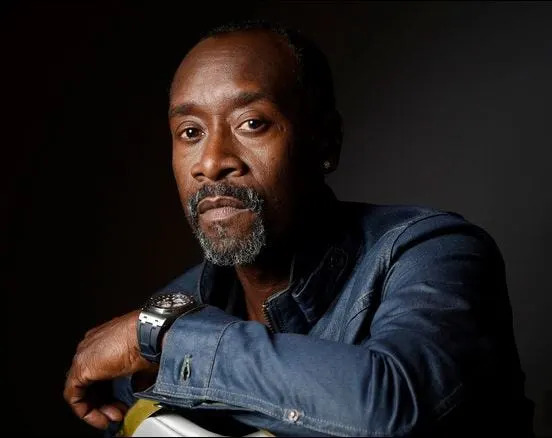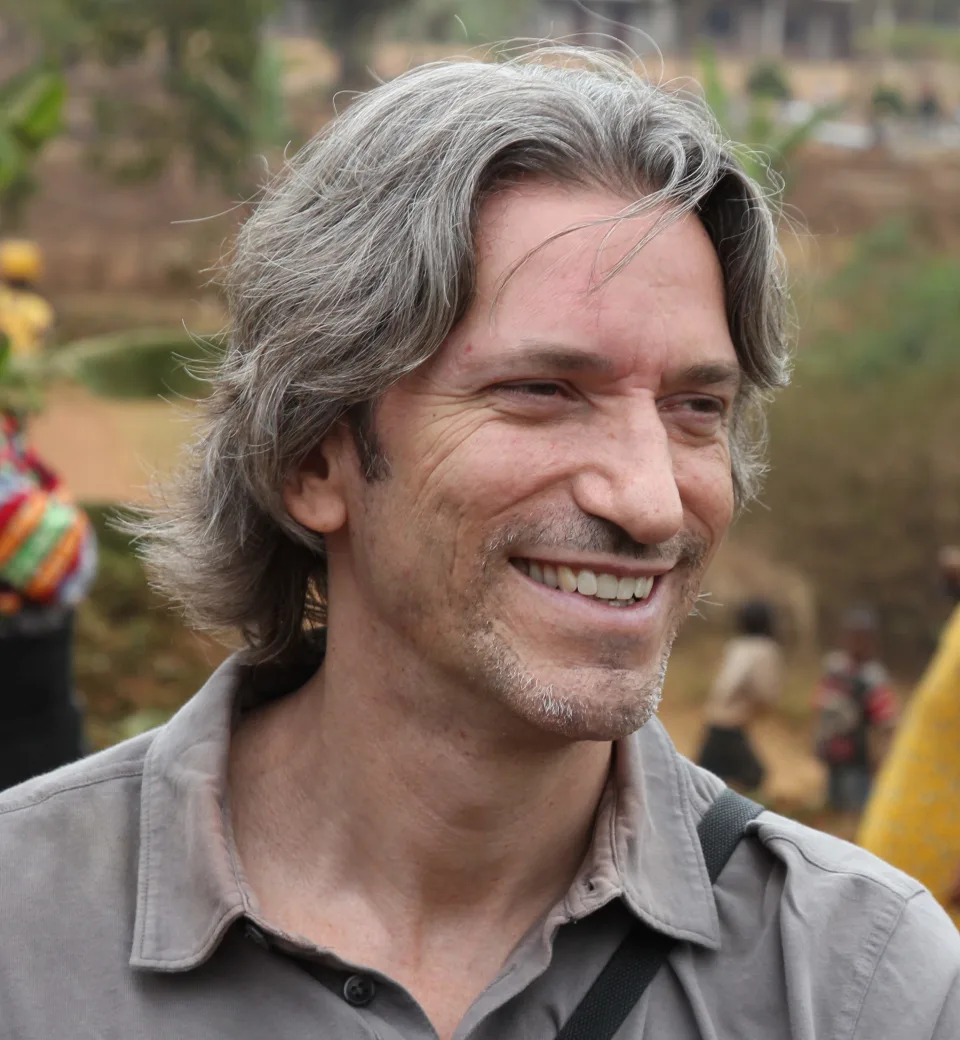United States Ambassador and Representative to the United Nations Linda Thomas-Greenfield addresses members of the U.N. Security Council before voting during a meeting on Non-proliferation of nuclear weapons, Wednesday, April 24, 2024, at United Nations headquarters. The United States on Monday, April 29, implored all countries supplying weapons to Sudan’s warring parties to halt arms sales, warning that history in the vast western Darfur region where there was a genocide 20 years ago “is repeating itself.” Thomas-Greenfield told reporters after an emergency closed meeting of the U.N. Security Council that El Fasher, the only capital in Darfur not held by paramilitary forces, is “on the precipice of a large-scale massacre.”
The United States on Monday implored all countries supplying weapons to Sudan’s warring parties to halt arms sales, warning that history in the vast western Darfur region where there was a genocide 20 years ago “is repeating itself.”
U.S. Ambassador Linda Thomas-Greenfield told reporters after an emergency closed meeting of the U.N. Security Council that El Fasher, the only capital in Darfur not held by paramilitary forces, is “on the precipice of a large-scale massacre.”
She urged all countries to raise the threat that “a crisis of epic proportions is brewing." Britain’s deputy ambassador James Kariuki echoed her appeal saying: “The last thing Sudan needs is a further escalation on top of this conflict that’s been going on for a whole year.”
AfriPrime Android Web View app on Amazon Adroid app store.... https://rb.gy/3xek46
Thomas-Greenfield said there are “credible reports” that the paramilitary Rapid Support Forces and their allied militias have razed many villages west of El Fasher and are planning “an imminent attack on El Fasher.”
“An attack on El Fasher would be a disaster on top of a disaster,” Thomas-Greenfield warned, saying it would put the two million people who live in El Fasher and 500,000 Sudanese who have sought refuge there at risk.
Thomas-Greenfield urged the paramilitary forces, known as the RSF, to end their siege of El Fasher “and swear off any attack on the city.”
She urged the RSF and rival government forces to take urgent steps to de-escalate the violence and engage in direct negotiations, protect civilians and enable humanitarian access, especially to the 5 million Sudanese “on the brink of famine” and 10 million others in desperate need of aid.
Sudan plunged into chaos in mid-April 2023, when long-simmering tensions between its military, led by Gen. Abdel Fattah Burhan, and the RSF paramilitary commanded by Mohammed Hamdan Dagalo broke out into street battles in the capital, Khartoum. Fighting has spread to other parts of the country, especially urban areas and the Darfur region.
U.N. political chief Rosemary DiCarlo told the council on April 19 the year-long war has been fueled by weapons from foreign supporters who continue to flout U.N. sanctions aimed at helping end the conflict. “This is illegal, it is immoral, and it must stop,” she said.
She didn’t name any of the foreign supporters.
But Burhan, who led a military takeover of Sudan in 2021, is a close ally of neighboring Egypt and its president, former army chief Abdel-Fattah el-Sissi. In February, Sudan’s foreign minister held talks in Tehran with his Iranian counterpart amid unconfirmed reports of drone purchases for government forces.
Dagalo, the leader of the RSF, has reportedly received support from Russia’s Wagner mercenary group. U.N. experts said in a recent report that the RSF has also received support from Arab allied communities and new military supply lines running through Chad, Libya and South Sudan.
Thomas-Greenfield said Monday that all regional powers must stop providing weapons to the warring parties as the U.N. arms embargo demands, and told reporters the United States will continue pressuring them.
In response to a question, she said one of the countries the United States has engaged with is the United Arab Emirates, which has repeatedly denied providing any weapons to Sudan.
The U.N.’s DiCarlo painted a dire picture of the war’s impact — over 14,000 dead, tens of thousands wounded, looming famine with 25 million people in need of life-saving assistance, and over 8.6 million forced to flee their homes.
During the war, the Arab-dominated RSF have carried out brutal attacks in Darfur on ethnic African civilians, especially the ethnic Masalit, and have taken control of most of the vast region – with El Fasher its newest target.
Two decades ago, Darfur became synonymous with genocide and war crimes, particularly by the notorious Janjaweed Arab militias, against populations that identify as Central or East African. Up to 300,000 people were killed and 2.7 million were driven from their homes.
That legacy appears to have returned, with the International Criminal Court’s prosecutor, Karim Khan, saying in January there are grounds to believe both sides may be committing war crimes, crimes against humanity or genocide in Darfur.
The RSF were formed from Janjaweed fighters by former Sudanese President Omar al-Bashir, who ruled the country for three decades before being overthrown during a popular uprising in 2019. He is wanted by the ICC on charges of genocide and other crimes during the conflict in Darfur in the 2000s.
Every two hours, a child dies in Sudan. Our global silence is deafening.
As the 21st century’s first genocide unfolded in the middle of the Sahara Desert 20 years ago, we were part of an unprecedentedly large coalition of citizens pressing the U.S. government to act. Sudan’s western region of Darfur was being ripped apart by militias collectively known as the Janjaweed (“devils on horseback”). Hundreds of thousands were killed, and millions rendered homeless.
We participated in rallies and met with politicians from all over the United States, traveled through rebel-held areas of Darfur, brought TV crews to spend time with refugees in the camps in Chad, co-authored an otherwise obscure book on Darfur that ended up a New York Times best-seller, and were part of an anti-genocide people’s movement called Save Darfur that was aimed at stopping the atrocities and supporting a peaceful democratic transition in Sudan.
Wouldn’t it be great if we could say this effort had a happy ending?
Tragically, genocide has returned to Darfur, along with mass atrocities being committed throughout Sudan in an escalating year-old war. But this time it has been met with a deafening silence. The only living creatures that are thriving in this environment are the vultures, feeding on corpses left in the streets to rot.
AfriPrime Android Web View app on Amazon Adroid app store.... https://rb.gy/3xek46
The worst hunger crisis in the world in decades
Having spent the past two decades being organized and armed by the Sudanese army, the Janjaweed – since expanded and now known as the Rapid Support Forces (RSF) – turned on their former army benefactors a year ago and have taken over large swathes of Sudan in one of the world’s deadliest civil wars.
With 10.7 million people already displaced, Sudan has the largest child refugee crisis in the world. The death toll is unknown because the nation’s medical system is collapsing. In one Darfur displaced camp, a child is dying every two hours. Immunizations have been dramatically reduced, setting many areas up for fresh epidemics. The school system has also cratered, while kidnapping and sexual slavery are on the rise. The capital city of Khartoum is being destroyed block by block, and religious persecution is spiking.
Experts say this is becoming the worst hunger crisis in the world in decades. Seven million people face the prospect of mass starvation by June. The suffering may be off camera now, but it won’t be in a few months when babies are starving en masse.
The RSF is militarily backed by the United Arab Emirates and has profited greatly from selling conflict gold to Dubai, Chad and Russia, which seeks a base on the Red Sea. The RSF has used genocidal violence and mass rape against non-Arab ethnic groups in Darfur and mass atrocities in other regions to gain territory.
The corruption-fueled Sudanese Armed Forces is backed by Egypt and Iran, with Iranian drones providing recent battlefield momentum. The SAF is dropping barrel bombs on urban neighborhoods, arresting and torturing Sudanese pro-democracy activists in ghost houses, and committing other grave rights violations.
The result is a country hurtling toward state collapse and mass famine, which will likely drive millions of Sudanese across an already fragile swath of Africa and northward across the Mediterranean Sea into Europe.
The Sudanese people are crying out for peace. Will the US listen?

By sending arms to their respective Sudanese allies and allowing Sudanese gold to be smuggled to their countries, the UAE and Egypt are undermining their longer-term goals in Sudan. The chance of their desired end – a satellite Sudanese regime beholden to them – is diminishing. Sudanese investment opportunities have become largely illicit.
Hopes for Sudan becoming a breadbasket for the Red Sea region have been dashed. Islamist and Iranian influences are expanding. And the UAE and Egypt will be increasingly tied to the horrors unfolding in Sudan.
Russia is similarly undermining its chances to establish a base on the Red Sea as its support for the RSF results in further mayhem.

With bipartisan encouragement from Capitol Hill, President Joe Biden recently appointed Tom Perriello as U.S. special envoy for Sudan, and he has hit the ground running, pressing all parties to return to a more inclusive negotiating table.
What was missing 20 years ago was any biting consequences for those committing genocide and any leverage for mediators like Perriello to use at the negotiating table. This time, the United States in partnership with its allies should utilize the vast array of policy tools of financial pressure such as targeted network sanctions and anti-money laundering measures.
AfriPrime Android Web View app on Amazon Adroid app store.... https://rb.gy/3xek46
These should be deployed in a rapidly escalating fashion against the dark money arrangements fueling the war, particularly against those benefiting from the gold being smuggled out of Sudan to the UAE.

With the Sudanese people crying out for peace, U.S. envoy Perriello seeks to turbocharge efforts at a cease-fire, humanitarian aid deliveries and a return to civilian rule. But mediation efforts need to be backed by policies that alter the war’s incentive structure by creating consequences for conflict gold trading networks and arms providers fueling the war.
As it stands now, only the vultures – whether birds or war profiteers – are benefiting from the slow collapse of the country.



